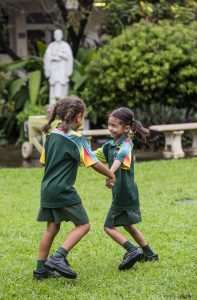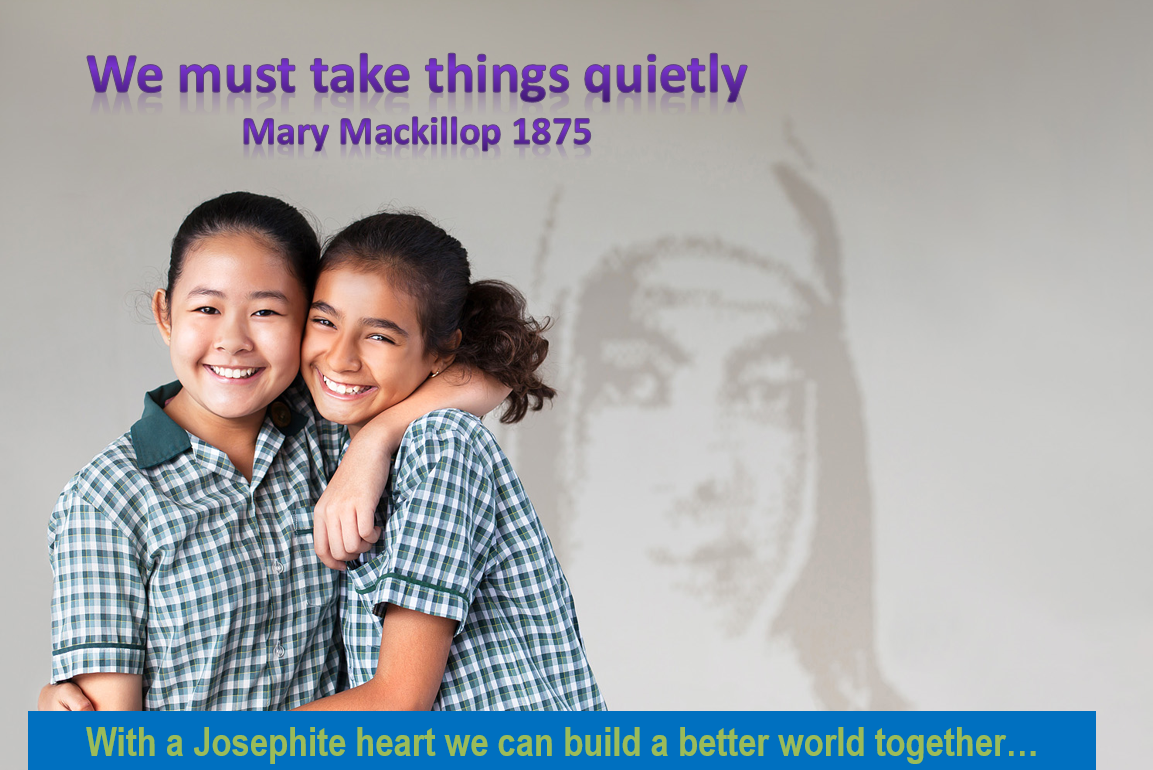 Through St Francis Xavier’s School Religious Education Program, children grow in knowledge of the Catholic faith and experience an invitation to deepen their relationship with God and to be active members of their faith community. The development of children’s faith (beliefs, attitudes, knowledge, and participation in parish life) is primarily the responsibility of parents/carers. The school supports parents/carers in their role by providing the Religious Education program. The St Francis Xavier’s Parish also supports parents through the provision of Sacramental preparation Programs.
Through St Francis Xavier’s School Religious Education Program, children grow in knowledge of the Catholic faith and experience an invitation to deepen their relationship with God and to be active members of their faith community. The development of children’s faith (beliefs, attitudes, knowledge, and participation in parish life) is primarily the responsibility of parents/carers. The school supports parents/carers in their role by providing the Religious Education program. The St Francis Xavier’s Parish also supports parents through the provision of Sacramental preparation Programs.
The program adopted by St Francis Xavier’s is the Brisbane Diocesan Religious Education Guidelines which has two focus areas; teaching people religion and teaching people to be religious.
Teaching people religion is an educational activity focused on the teaching and learning of religion and utilising a range of learning processes and resources. In a school, teaching religion occurs in a classroom setting or other structured learning environments. The aim of teaching religion to students in a school is to assist them in developing their religious literacy so that they may be better able to participate in a critical and effective way in the life of their own faith communities and in the wider society. (Refer Syllabus, p18)
Teaching people to be religious is identified with the Religious Life of the School and is a faith development activity focused on nurturing the religious, spiritual and faith growth of students.’(Syllabus Religious Education – Guidelines for the Religious Life of the School p8)
Prayer Life
At the centre of the Catholic community is the celebration of the Eucharist. It is from the Eucharist that we remember the life and message of Jesus, which nourishes the way in which each Christian lives this out in their own life. Therefore the development of the value of prayer is an important part of educating young Christian people. This is easier to achieve when children experience prayer in the home environment as well. Care
is taken to ensure that children will be encouraged and led to an appreciation and practice of prayer in such a way that they feel free to develop at their own rate and in their own particular way. Within that general aim the school:
- Teaches the formal prayers of the Church
- Encourages informal prayer (spontaneous)
- Makes provision for the Sacrament of Reconciliation to be celebrated
- Provides a quiet time each day for children and each class practices daily meditation
- Provides a regular prayer time each day
- Each year level celebrates a Liturgy each term and parents and friends are welcome to attend and share this with the students
Our School Prayer
Prayer of Saint Mary MacKillop of the Cross
God of Love,
We thank you for the life of Saint Mary (MacKillop) of the Cross
Who was a friend of children
And of poor people in Australia
May we follow Jesus as Saint Mary MacKillop did,
By loving all those we meet.
Amen
Sacramental Programme
In the West Cairns Parish, a Sacramental Team is responsible, along with the Parish Priest, for the organizing of the sacraments of Reconciliation, Eucharist and Confirmation. Reception of the Sacraments is the responsibility of parents via the Parish Sacramental Program. Our school’s Religious Education program supports parents in this role and catechesis children in the Sacraments from Prep through to Year 6. Children are eligible for First Reconciliation, Confirmation and First Eucharist in Year 4. To enquire about the Sacramental Program, please contact the Church Office on 4053 1383.
How to be a part of the Religious Life of our School
- Parents are very welcome to be a part of the Religious Education program in the school. There are a number of ways this can be done:
- Talking to your children about what they are learning in class
- Attending class and school liturgies and celebrations
- Talking to teachers at parent-teacher interviews about your child’s progress in Religious Education.
Formal reporting on your child’s progress in Religious Education is based on knowledge, skills and understanding of content taught.


